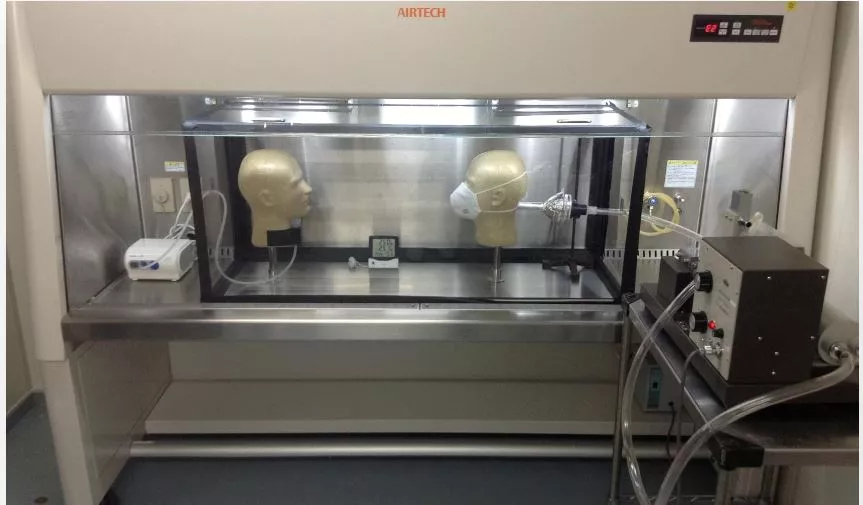Japan researchers show masks do block coronavirus, but not perfectly
Cotton mask reduced viral uptake by receiver head by up to 40% compared to no mask
TOKYO:Japanese researchers showed that masks can offer protection from airborne coronavirus particles, but even professional-grade coverings can’t eliminate contagion risk entirely.
Scientists at the University of Tokyo built a secure chamber with mannequin heads facing each other. One head, fitted with a nebulizer, simulated coughing and expelled actual coronavirus particles. The other mimicked natural breathing, with a collection chamber for viruses coming through the airway.
Infection mode returns with halloween zombies in PUBG mobile
A cotton mask reduced viral uptake by the receiver head by up to 40% compared to no mask. An N95 mask, used by medical professionals, blocked up to 90%. However, even when the N95 was fitted to the face with tape, some virus particles still sneaked in.
When a mask was attached to the coughing head, cotton and surgical masks blocked more than 50% of the virus transmission.
“There was a synergistic effect when both the virus receiver and virus spreader wore masks,” the researchers wrote in a study published on Wednesday.
Photoshop's new AI features include skin smoothing and sky replacement
There has been a growing consensus among health experts that the Covid-19 virus can be spread through the air. The US Centers for Disease Control and Prevention (CDC) revised its guidance this month to say the pathogen can linger in the air for hours.
A separate team of Japanese researchers used supercomputer simulations to show that humidity can have a significant effect on the airborne dispersion of virus particles.


COMMENTS
Comments are moderated and generally will be posted if they are on-topic and not abusive.
For more information, please see our Comments FAQ